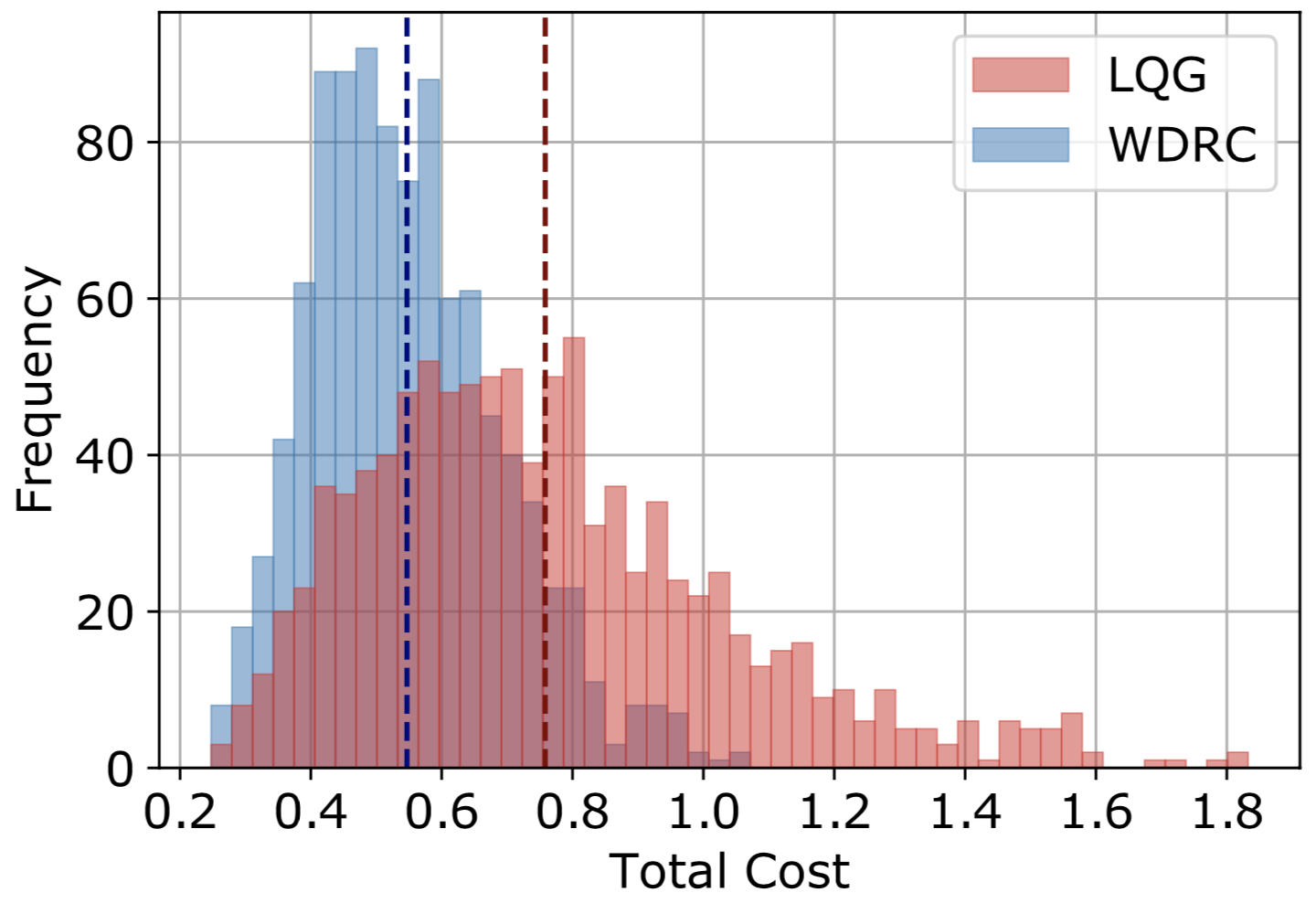
The papers “Wasserstein distributionally robust control of partially observable linear systems: Tractable approximation and performance guarantee” and “On affine policies for Wasserstein distributionally robust unit commitment” have been accepted to 2022 IEEE Conference on Decision and Control (CDC).
Wasserstein distributionally robust control of partially observable linear systems: Tractable approximation and performance guarantee
by Astghik Hakobyan, and Insoon Yang
Abstract:
Wasserstein distributionally robust control (WDRC) is an effective method for addressing inaccurate distribution information about disturbances in stochastic systems. It provides various salient features, such as an out-of-sample performance guarantee, while most of the existing methods use full-state observations. In this paper, we develop a computationally tractable WDRC method for discrete-time partially observable linear-quadratic (LQ) control problems. The key idea is to reformulate the WDRC problem as a novel minimax control problem with an approximate Wasserstein penalty. We derive a closed-form expression of the optimal solution to the approximate problem using a nontrivial Riccati equation. We further show the guaranteed cost property of the resulting controller and identify a provable bound for the optimality gap. Finally, we evaluate the performance of our method through numerical experiments using both Gaussian and non-Gaussian disturbances.
On affine policies for Wasserstein distributionally robust unit commitment
by Youngchae Cho, and Insoon Yang
Abstract:
This paper proposes a unit commitment (UC) model based on data-driven Wasserstein distributionally robust optimization (WDRO) for power systems under uncertainty of renewable generation as well as its tractable exact reformulation. The proposed model is formulated as a WDRO problem relying on an affine policy, which nests an infinite-dimensional optimization problem and satisfies the non-anticipativity constraint. To reduce conservativeness, we develop a novel technique that defines a subset of the uncertainty set with a probabilistic guarantee. Subsequently, the proposed model is recast as a semi-infinite programming problem that can be efficiently solved using existing algorithms. Notably, the scale of this reformulation is invariant with the sample size. As a result, a number of samples are easily incorporated without using sophisticated decomposition algorithms. Numerical simulations on 6- and 24-bus test systems demonstrate the economic and computational efficiency of the proposed model.


![[CDC 2 papers] Distributionally robust partially observable control, Distributionally robust unit commitment](http://coregroup.snu.ac.kr/wp-content/uploads/2018/11/Depositphotos_4892867_xl-2015.jpg)


